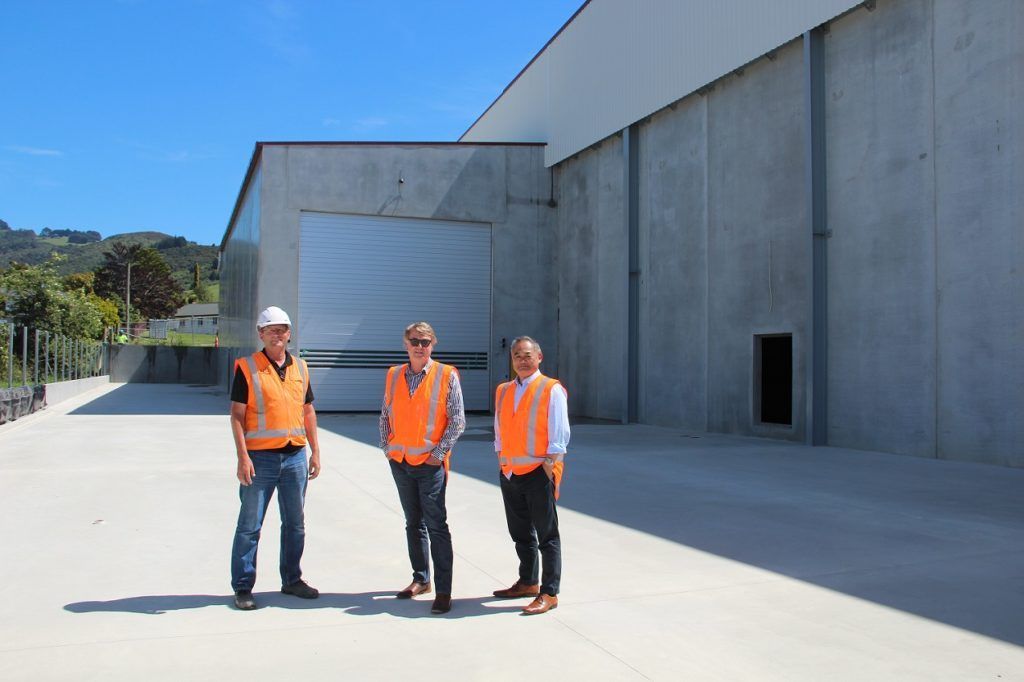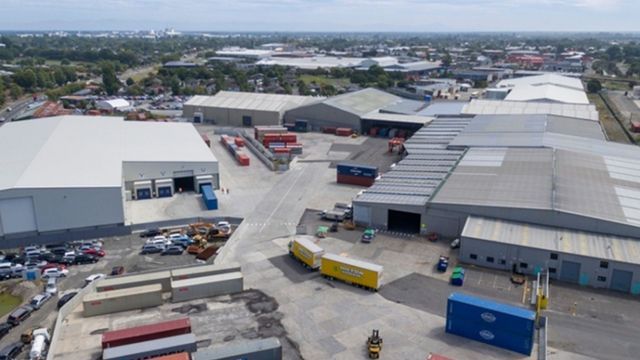Invested in your success.
Wholesale commercial property investment

Bringing you closer to financial freedom.
At Quarry Capital, we enhance the lives of New Zealanders by unlocking investment opportunities in commercial property syndication.
Our approach is centred on the strength of our relationships, coupled with an exceptional degree of diligence and care. Wealth creation is our skill. But people are our focus. We are invested in your success, no matter how you choose to define it.
20+
Years Experience
16
Property Syndicates
$290m+
Total Property Value
350+
Investors
Portfolio
Insights

Who can invest with Quarry? While some commercial property investment opportunities and funds are available to ‘retail’ investors (the general public), others may only be available to ‘wholesale’ investors. Quarry Capital’s investment opportunities are currently only available to ‘wholesale’ investors within the meaning of clauses 3(2), 3(3)(a) and 3(3)(b) of Schedule 1 of the Financial Markets Conduct Act 2013 (‘FMCA’). What is a wholesale investor? To meet the Financial Markets Authority – Te Mana Tātai Hokohoko (‘FMA’)’s definition of a ‘wholesale investor’, an investor must be at least one of the following: a Government agency, or; an ‘ investment business ’, or; must meet the ‘ investment activity ’ criteria, or; must be considered ‘ large ’, or; must be considered to be an ‘ eligible investor ’, or; invest at least $750,000 in a particular offer. Investment Business A person or entity meets the ‘ investment business ’ criteria if their primary business is investing in financial products, acting as a financial adviser, providing financial advice or trading in financial products on behalf of other persons. Investment Activity A person meets the ‘ investment activity ’ criteria if at least one of the following paragraphs apply: the person owns, or at any time during the 2-year period before the relevant time has owned, a portfolio of specified financial products of a value of at least $1 million (in aggregate): the person has, during the 2-year period before the relevant time, carried out 1 or more transactions to acquire specified financial products where the amount payable under those transactions (in aggregate) is at least $1 million and the other parties to the transactions are not associated persons: the person is an individual who has, within the last 10 years before the relevant time, been employed or engaged in an investment business and has, for at least 2 years during that 10-year period, participated to a material extent in the investment decisions made by the investment business. Large investor A person meets the ‘ large ’ investor criteria if at least one of the following paragraphs applies: as at the last day of each of the 2 most recently completed financial years of the person before the relevant time, the net assets of the person and the entities controlled by the person exceeded $5 million: in each of the 2 most recently completed financial years of the person before the relevant time, the total consolidated turnover of the person and the entities controlled by the person exceeded $5 million. Eligible investor A person meets the ‘ eligible investor ’ criteria if they self-certify that they have previous experience in acquiring or disposing of financial products (as defined under the FMCA) to be able to assess the: merits of the transaction; their information needs and the adequacy of the information provided; and they understand the consequences of certifying themselves to be an eligible investor. The certificate must set out the grounds for the investor certifying they have sufficient investment experience to assess the merits of a particular transaction, including value and risk. Where the stated grounds are not relevant to the certification, the certificate will not meet the FMCA requirements. In addition to the self-certification, the eligible investor must receive independent written confirmation of the above certification from either a financial adviser, a qualified statutory accountant or a lawyer after having them consider the investor’s grounds for their certificate and confirming that they: are satisfied that the investor has been sufficiently advised of the consequences of the certification; and have no reason to believe that the certification is incorrect or that further information or investigation is required. What does this mean in terms of overall risk and protection? It is important to note that wholesale offers are not regulated in the same way as offers to retail investors. The FMA advises that investing in a wholesale offer may mean you: do not receive a product disclosure statement (PDS) for the offer. The PDS sets out the key characteristics, risks and features of the investment, in clear, concise and effective language that is aimed at a prudent but non-expert investor. A PDS is not required for wholesale offers. are not dealing with a firm licensed by the FMA (this is particularly relevant for offers of managed investment products and derivatives). Licensing gives us the ability to monitor the activities of the firm. do not have access to a free independent dispute resolution scheme if things go wrong. do not receive information about the investment’s ongoing performance. won’t have a licensed supervisor (an entity that looks after the interests of investors) in the case of debt securities such as bonds and managed investment schemes. How we operate In 2017, Quarry Capital were granted a market service licence to operate as a manager of Managed Investment Schemes (MIS), excluding managed funds. The licence requires Quarry to adhere to strict FMA licence requirements and has given rise to the appointment of two independent, non-executive directors to the Quarry board. The processes and practices implemented have resulted in a very high standard of offer documentation in the form of a detailed Information Memorandum, as well as regular quarterly and annual financial reporting for each syndicate. In addition, Quarry hosts Annual General Meetings for each syndicate and aims to provide regular and transparent communication between management, the Quarry Board and the investors. We encourage all of our investors to communicate with us via phone or email or come into the office for a chat to discuss their investment and future opportunities whenever they feel like doing so.

Against a backdrop of Covid-19 enforced lockdowns and supply-chain uncertainty, a 1.33 hectare site in Sawyers Bay, Dunedin, has transformed into a state of the art $16.75m industrial warehouse and office facility over the past 10 months. The Duke Street Limited Partnership, managed by Christchurch-based property syndicator, Quarry Capital Limited (‘Quarry’), is proud to hand the keys over to tenant Hilton Haulage (‘Hilton’) today as Hall Brothers and Thompson Construction and Engineering complete the final touches. The 7,700m2 development is the culmination of a long-term vision to support both Quarry and Hilton’s growth aspirations, continuing a strategic relationship between tenant and landlord. The purchase has been modelled on a flexible fund-through approach which has benefitted both parties. The $10.1m of equity raised by Quarry from its existing wholesale investor base as well as new wholesale investors (within the meaning of clauses 3(2), 3(3)(a) and 3(3)(b) of Schedule 1 of the Financial Markets Conduct Act 2013) has been used to purchase the land, demolish the existing building and contribute toward funding the construction. The tenant has handled the project management responsibilities including full compliance during construction. David Kitson, Managing Director of Quarry, saw the same potential in the site’s location due to the proximity to Port Otago and the two companies began collaborating on the project in 2020. David says: “the experience and capability of the tenant has ensured the process has exceeded expectations from start to finish. Trust and communication have underpinned the project’s success and we are excited for Hilton to move in, as well as show our investors the impressive facility they have funded and now own”. Wholesale investors in the Duke Street Limited Partnership invested funds in two equal instalments in March and in June and received a cash distribution for their investment between 1 April and 31 October and now receive a 7.0% pre-tax cash distribution from rental income which commenced 1 November. The property syndicate, the fifth managed by Quarry, attracted 63 investors from around the country. Hilton has taken a 12-year lease with 2 further rights of renewal. The fund-through model allows a developer to complete a project which is funded by the syndicate based on pre-agreed milestones. This model replaces the need for the developer to seek bank funding. The purchase price, which is paid through progress payments, is equivalent to the valuation as if complete. Any development profit (less funding costs) is retained by the developer, who also takes responsibility for the development risk. Quarry has the skills to design and deliver flexible fund-through solutions for experienced developers due to its ability to think outside the box, work collaboratively with various stakeholders and raise capital from qualified investors. Quarry can also work alongside potential tenants seeking a property partner.







